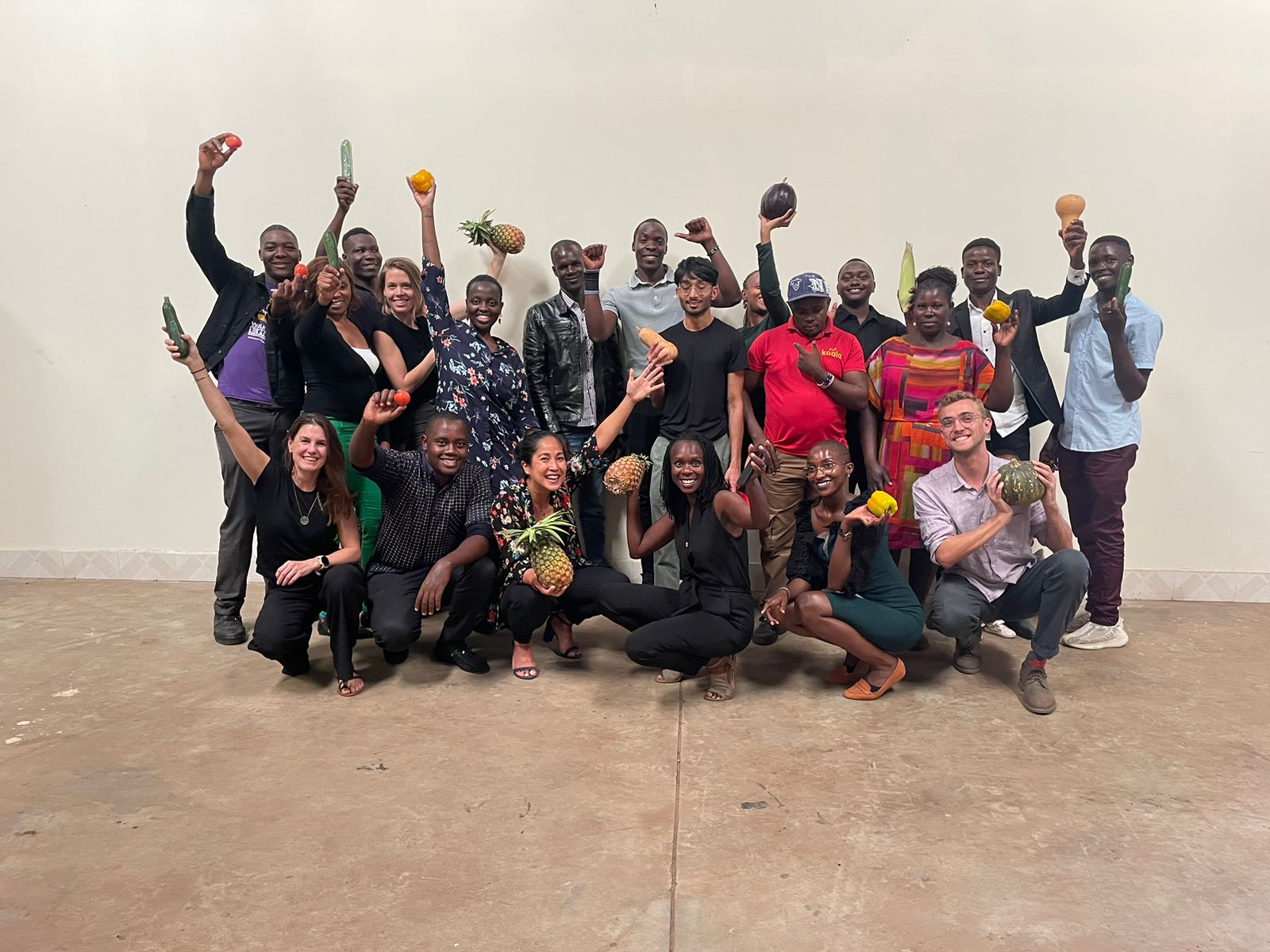Greetings, Agents of Impact! We’re back from our Brief break.
This week’s Agents of Impact Call: 10x’ing systemic impact investing. Overcoming systemic racism. Mitigating systemic risk. It seems everybody is talking about systemic investing. Living Cities’ Demetric Duckett, Cambridge Associates’ Sarah Hoyt, Sinclair Capital’s Jon Lukomnik and The Investment Integration Project’s Bill Burckart will join ImpactAlpha’s David Bank and other Agents of Impact to, yes, talk about how to take action on systemic investing. Don’t miss The Call No. 22, this Thursday, August 13, at 10am PT / 1pm ET / 6 pm London. RSVP today.
Featured: ImpactAlpha Original
Corporate collaboration: Microsoft backs Energy Impact Partners to speed the low-carbon transition. The first investment from Microsoft’s Climate Innovation Fund last month also backed an innovation in corporate strategic investing. Until recently, Energy Impact Partners has flown under the radar with its collaborative approach to investing in and implementing energy transition technologies. With its $50 million stake, Microsoft joins rental car giant Enterprise, electrical power utilities Xcel Energy, Southern Co. and National Grid among 30 corporations investing in New York-based EIP. “Addressing climate change is uniquely suited for a collaborative model,” EIP’s Hans Kobler told ImpactAlpha. Companies “all want to reduce their emissions and position themselves better for the future.” Microsoft early this year pledged to remove by 2050 all of the carbon the company has emitted since the company was founded in 1975.
EIP invests in later-stage companies with technology that is ready to deploy. Kobler founded the firm five years ago as regulatory changes, declining costs for renewable energy and storage and the rising threat of climate change were disrupting staid utilities. EIP now acts as a clearinghouse for innovative technology, business models and deals as well as best practices for decarbonizing operations of a broader range of companies. Investments have included clean energy access company Arcadia Power; smart thermostat maker ecobee; and Greenlots, which makes software to manage EV charging networks (and was acquired by Shell last year). “We need access to these tech companies because they are the enablers of the future business models,” says Southern Co.’s James Heath.
- Strategic collaboration. Microsoft, along with Danone, Mercedes-Benz and Nike, were among nine companies that last month launched Transform to Net Zero, aimed at accelerating the transition to net-zero emissions. The Hydrogen Council, focused on advancing green hydrogen, added 11 new corporate members. Circulate Capital has raised more than $100 million from PepsiCo, Procter & Gamble, Dow, Danone, Unilever, Coca-Cola and other corporations to reduce ocean plastics.
Keep reading, “Corporate collaboration: Microsoft backs Energy Impact Partners to speed the low-carbon transition,” by Amy Cortese on ImpactAlpha.
Dealflow: Follow the Money
AppHarvest closes $28 million for its high-tech rural farms. The indoor farming venture is building a 2.8 million-square-foot greenhouse in Morehead, Ky. to bring technology to sustainable agricultural production and jobs to an area with high unemployment and low incomes. Hedge fund manager Jeff Ubben, who backed AppHarvest while at ValueAct Capital Management, re-upped with his new firm, Inclusive Capital (see, “Life imitates art”). Investors in its Series C round include Breyer Capital, S2G Ventures, James Murdoch’s Lupa Systems, NBA star Kevin Johnson’s Black Capital and Endeavor Catalyst. Equilibrium Capital, which invested $82 million in AppHarvest last year, joined the new round as well. The B Corp. is gearing up to build new farms. Martha Stewart, Impossible Foods’ David Lee and Narya’s J.D. Vance joined the board. More.
- More high-tech greenhouses. Equilibrium is expected to announce today an investment in Mexico-based Finka to expand its greenhouse operations in the state of Querétaro. It is the first foreign greenhouse investment for Equilibrium, one of the largest vegetable greenhouse owners in the U.S.
EIT Food invests €5.5 million in COVID relief for European food startups. The initiative of the European Institute for Innovation Technology makes early investments in European companies advancing a sustainable food system. It committed bridge funding to help 13 startups weather COVID disruptions and continue research and development. Most of the funding comes from EIT’s €60 million Crisis Response Initiative, part of the E.U.’s COVID response.
- Disrupted development. Early-stage, deep-tech food companies require access to seed capital, facilities, equipment, and potential customers for product testing. “This access has – for a period of time – been rendered impossible and is only slowly getting back on track,” EIT Food’s Andy Zygna told ImpactAlpha. “Previously well-funded ventures and seed-stage companies are at risk.”
- Portfolio support. The 13 companies include Poland’s plant-based protein startup NapiFeryn, which will use the funding to continue its R&D; France’s food preservation tech venture Antofénol, which will use the funding for product development; and an ingredients company that is forging ahead with new applications amid uncertainty in signing new customers. Nine of the companies were already in EIT Food’s portfolio.
- Dig in.
ChargePoint raises $127 million to expand electric vehicle charging network. Electric vehicle adoption is spurring the redesign of electricity infrastructure to accommodate widespread charging. ChargePoint’s software integrates multiple charging systems in a single network. It has more than 100,000 charge points in Europe and the U.S. Already backed utilities and fossil fuel companies, ChargePoint raised new capital from American Electric Power, Braemar Energy Ventures, Canada Pension Plan Investment Board, Chevron Technology Ventures, Clearvision, GIC, Linse Capital and Quantum Energy Partners.
Mirova closes $132 million Sustainable Oceans Fund. The fund was launched in 2016 by Althelia Ecosphere, which was acquired by Mirova. It has made seven investments aimed at greater sustainability and improved livelihoods for marine and fishing communities. The fund reached a first close of $37.5 million in 2018.
Signals: Ahead of the Curve
Bringing ESG strategies to private markets to boost value and impact. Public market investors increasingly are deploying ESG, or environmental, social and governance, investing strategies to manage risks and opportunities in company operations. Private-market impact investing puts the focus on outcomes, or how the company’s products and services deliver education, healthcare, financial access and other social or environmental goals. By integrating ESG and impact, argue Jessica Droste Yagan and Priya Parrish of Chicago-based venture firm Impact Engine, investors can boost impact and improve returns. “A great ESG strategy will take into account the impacts of the products that are being sold,” write Yagan and Parrish. “Likewise, an effective impact investing strategy will take into account that a business’s impacts will go well beyond its product, especially as it scales.”
- Value creation. In its venture strategy, Impact Engine accesses the diversity of the management team and board of directors as a risk or strength. It ensures companies address customer security and privacy, and have in place ethical practices and strong governance. In its private equity strategy, the firm identifies ESG risks and opportunities and evaluates management’s ability and willingness to make improvements throughout the investment period. “We believe our ESG management process helps ensure the total net impact of the company is positive.”
- Private equity uptake. Traditional private-market investors are deploying ESG strategies to help portfolio companies lower costs, identify risks and connect to customers (see, “Impact signals for venture capitalists”). Earlier this year, Mercatus, a private markets data platform, integrated Sustainability Accounting Standards Board, or SASB, standards to help investors analyze material ESG data across portfolios. The uptake of ESG in private markets “has been significant,” SASB’s Jeff Cohen told ImpactAlpha (Still, only about 700, or fewer than 10% of global private equity firms have signed the Principles for Responsible Investment; a much smaller fraction disclose that they receive ESG reports from their portfolio companies). Impact investing firms like Octopus and LeapFrog are dedicated to the approach, while many old-line middle market buyout funds simply realize the utility of the approach, Cohen says. “There’s growth across all.”
- Share this post.
Agents of Impact: Follow the Talent
Christian Super appoints Mark Rider as chief investment officer. Outgoing CIO Tim Macready joins Sydney-based Brightlight Group as chief investment officer… Justin Kulla, BusinessBlocks founder, joins TZP Group as a partner and head of impact investing… Nonprofit Finance Fund is hiring a strategy senior associate in Boston, Los Angeles, New York, Oakland or Philadelphia… Next Street is looking for a senior analyst in New York… ImpactAssets seeks a business development associate in San Francisco… Rockefeller Foundation is recruiting a manager of equity and economic opportunity in New York… Endeavor Global is hiring a senior associate to join Endeavor Insight in New York… Urban Us is looking for a capital associate in New York… The Mentor Capital Network is seeking early-stage, for-profit, mission-driven entrepreneurs to connect to its global mentor network. Apply by Aug. 17.
Thank you for reading.
–August 10, 2020











